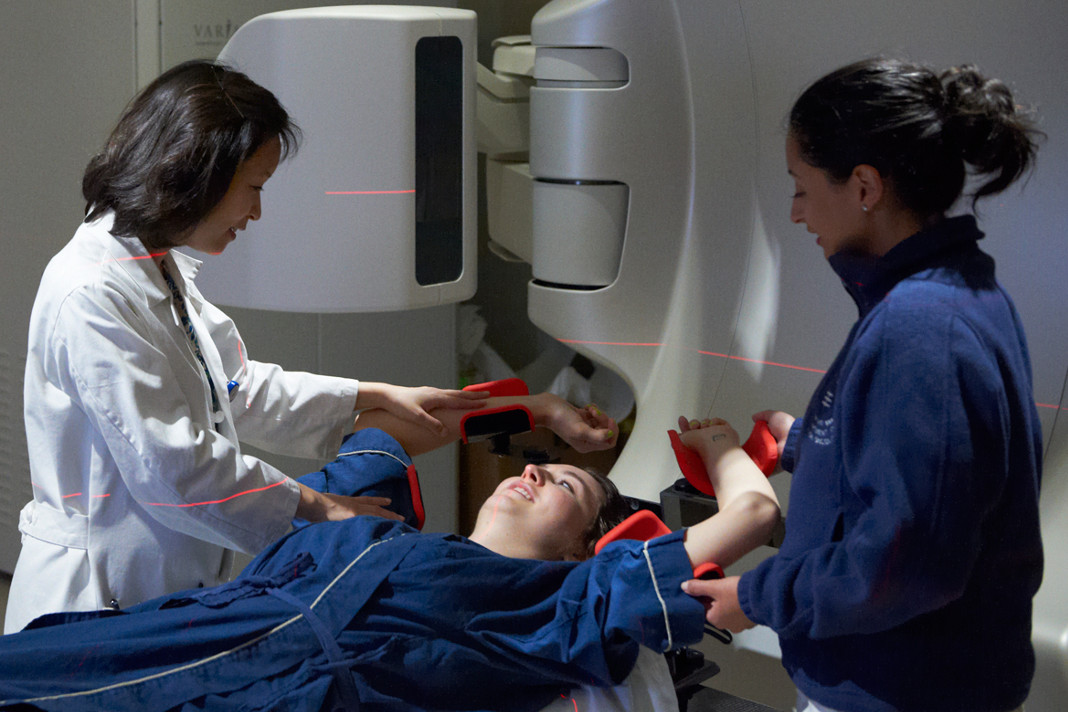Breast cancer is a malignant (cancerous) tumor that occurs when cells in the breast becomes so over-active that they won’t stop multiplying.
All women are at risk for getting breast cancer.
So, it is better to have breast cancer information for right treatment. Breast cancer refers to a wide variety of cancers that occurs in the breast.
The most common types of breast cancer are ductal carcinoma (occur in milk ducts of the breasts) and Lobular carcinoma (occur in the lobules where breast milk is made).
Breast cancer information on in situ breast cancer
This refers to a cancer where the breast cancer cells that remains within their place of origin and do not attack breast tissue around the duct or lobule.
Breast cancer information on ductal carcinoma in situ (DCIS): This is early-stage breast cancer that some experts consider as a “precancerous” condition. If left untreated, it may eventually become invasive breast cancer.
Breast cancer information on lobular carcinoma in situ (LCIS): This type remained a point of controversy in the medical community whether to consider it as an early form of breast cancer or just a marker for the future development of cancer.
If you have LCIS, then you’re more likely to develop invasive lobular breast cancer. Awareness about how to reduce the likelihood of getting breast cancer and increasing the effectiveness of treatment involves heightening public awareness. Affordable health insurance can make it easier to get through these tough illnesses without losing your resources.
Breast cancer information on invasive breast cancer
This refers to the cancers that break free of where they originate, attacking the surrounding tissues of your breast.
Breast cancer information on invasive ductal carcinoma (IDC): It refers to the majority of invasive breast cancers where cancer cells in the lining of your milk duct break free the ductal wall and attacks surrounding breast tissue.
Breast cancer information on invasive lobular carcinoma (ILC):It is less common than IDC, but starts in the milk-producing lobule and attacks the surrounding breast tissue. It can also spread to more distant parts of your body.
It is also important to have breast cancer information regarding less common types of breast cancers. They are:
Inflammatory breast cancer: This is a rare type of breast cancer that results from cancer cells blocking lymph vessels located near the surface of your breast.
Medullary carcinoma: A specific type of invasive breast cancer where the cancer cells are large, and immune system cells are present around the border of the tumor.
Mucinous (colloid) carcinoma: A type of invasive breast cancer where the cancer cells produce mucus and grow into a jelly-like tumor.
Paget’s disease of the breast: A rare type of breast cancer that affects your nipple and areola. It starts in a milk duct, as either an in situ or invasive cancer.
Tubular carcinoma: This is a rare type of breast cancer. Although it’s an invasive breast cancer, the view is more favorable than invasive ductal carcinoma or invasive lobular carcinoma.
Phylloides tumor: Phylloides tumors develop in the connective tissue of the breast, rather than in a duct or lobule. The outlook for a phylloides tumor is doubtful.
Metaplastic carcinoma: This type remains localized and contains numerous different types of cells that are not typically seen in other forms of breast cancer.
Sarcoma: It develops in the connective tissue of the breast, which is malignant.
Micropapillary carcinoma: It tends to be relatively aggressive, often spreading to the lymph nodes even when very small.
Adenoid cystic carcinom: It is characterized by a large, local tumor. It’s an invasive but very slow-growing type that’s unlikely to spread.
Know breast cancer information before to take correct treatment for breast cancer.







A chronic breast infection could lead to the formation of abscess or pus in the breast that would need to withdrawn by surgical intervention. During such situation, discontinuation of breastfeeding is advised.
[…] have known about. How do these facts about women’s breasts affect the probability of having breast cancer? Read on to find […]
[…] Inverted nipples are, as the term suggests, nipples that are inverted or reversed. Nipples will otherwise protrude whereas inverted nipples do not; rather they retract into the breast[breast cancer]. […]
I’m a mail nursing student and I’m a huge advocate for Breast Cancer research and support. My friend died from Breast cancer. So i join the group of breast awareness to help others who suffered this problem. I’m always wearing my pink ribbon and my pink ribbon necklace and I have many breast cancer/pink ribbon clothing articles.
[…] Cancer Detected? July 9th, 2010 | Author: admin Most of us are aware that early detection of breast cancer is a woman’s best bet if she wants to beat the disease and survive. Combined with factors such as […]